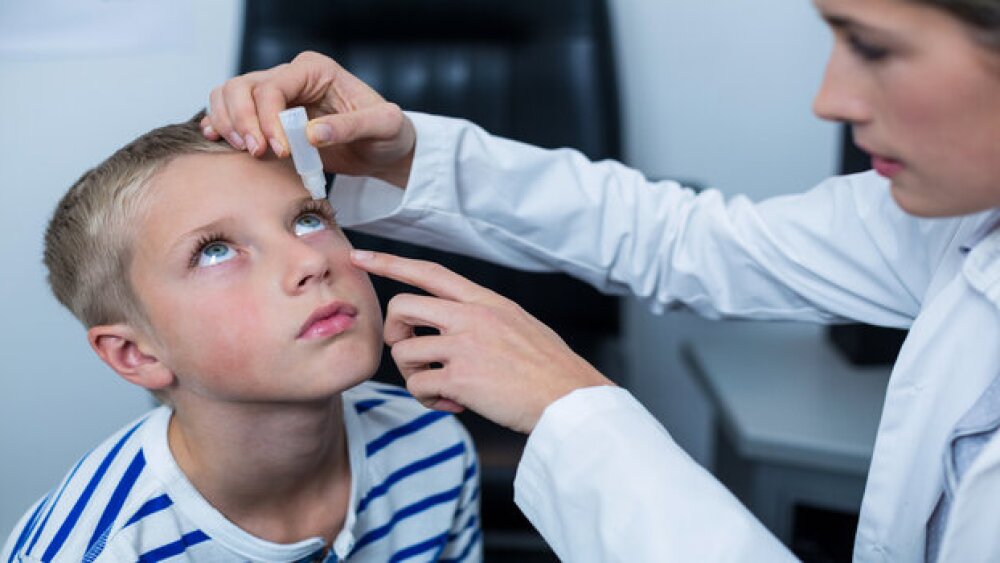Under the FDA’s compassionate use program, an eyedrop formulation of Krystal Biotech’s Vyjuvek restored the vision of a teenager with the rare genetic disease dystrophic epidermolysis bullosa.
Pictured: Doctor administers eye drops to a boy/iStock, Wavebreakmedia
Krystal Biotech’s topical gene therapy Vyjuvek (beremagene-geperpavec) in an eyedrop formulation has restored the vision of a 13-year-old boy with the genetic condition dystrophic epidermolysis bullosa that scarred his eyes, according to a case brief published Thursday in The New England Journal of Medicine.
The patient—named Antonio, as reported by the Associated Press—presented with chronic wounds and webbed hands and fingers, with a best-corrected visual acuity of 20/40 in the right eye and 20/80 in the left eye. Slit-lamp examination revealed scar tissue in both eyes.
Antonio initially underwent surgery on his left eye but the lesions returned after three months and visual acuity worsened to 20/400 about a year after the procedure. Eventually, blisters also began to develop in his right eye. Antonio continued to receive aggressive interventions—including a second surgery and other topical and injected treatments—but lesions continued to recur.
In 2020, the patient participated in a Phase III trial of Vyjuvek, which triggered significant healing of his wounds. After the FDA cleared an Investigational New Drug application for compassionate use of Vyjuvek for Antonio’s eye scarring, his doctors performed another round of surgery on his right eye, followed by the topical administration of the Vyjuvek eyedrops.
Within three months and after a total of 19 Vyjuvek doses, Antonio’s corneal epithelium fully healed based on an evaluation using slit-lamp examination and optical coherence tomography. At eight months, assessments revealed complete epithelial healing and imaging found no signs of corneal scarring, recurrence or other abnormalities.
Antionio also demonstrated better visual acuity after Vyjuvek treatment, improving to 20/25 at eight months. Intraocular pressure and retinal integrity had also normalized following the intervention.
In terms of safety, the NEJM paper flagged one surgery-related serious adverse event that required “prolonged hospitalization” and resulted in vomiting. However, Vyjuvek treatment was not halted and the patient was eventually discharged.
“Our data support further investigation of [beremagene geperpavec gene therapy] in the care of patients with dystrophic epidermolysis bullosa with ocular surface involvement,” the researchers wrote in the brief, noting that Antonio’s case supports the potential of Vyjuvek to promote epithelial healing in the cornea.
Vyjuvek is a topical gene therapy that delivers two functional copies of the COL7A1 gene, which in dystrophic epidermolysis bullosa (DEB) is made faulty by genetic mutations, leading to dysfunctional type VII collagen proteins. DEB manifests as extremely fragile skin prone to wounding and tearing even from light contact. Some cases of DEB can also affect the eyes.
In May 2023, the FDA approved Vyjuvek for the treatment of DEB in patients aged six months and older, making it the first-ever redosable gene therapy in the market.
Tristan Manalac is an independent science writer based in Metro Manila, Philippines. Reach out to him on LinkedIn or email him at tristan@tristanmanalac.com or tristan.manalac@biospace.com.






